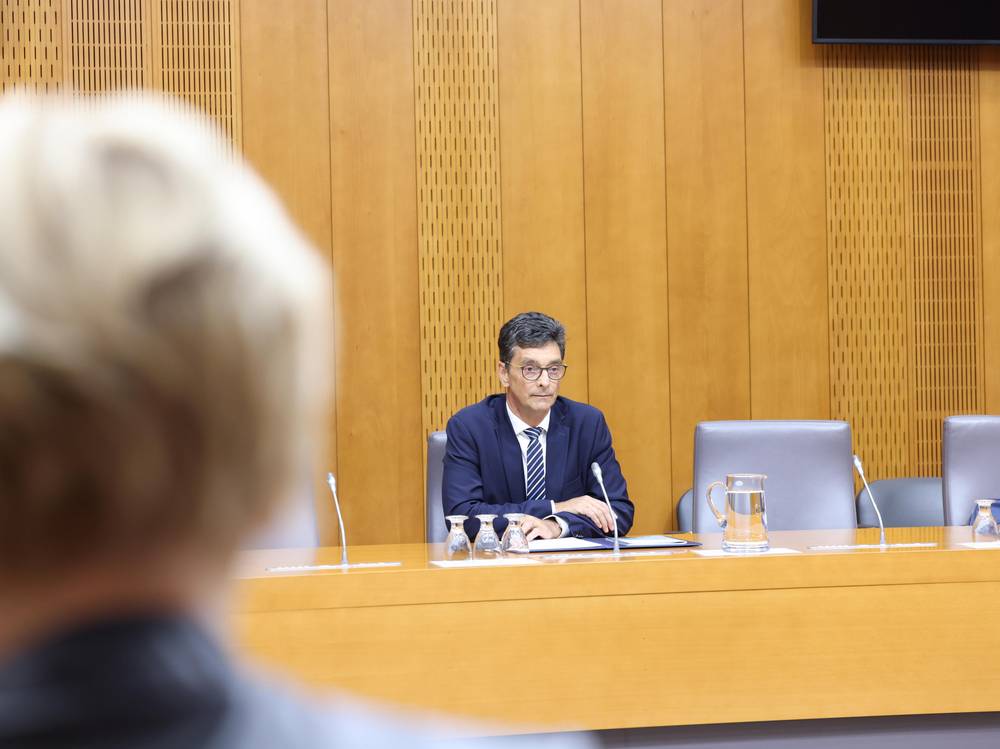On 29 September 2023, the Parliamentary Committee on Labour, the Family, Social Policy and the Disabled discussed the 28th regular Ombudsman’s Annual Report dealing with its competences.
Last year, due to soaring prices, the Human Rights Ombudsman of the Republic of Slovenia (Ombudsman) received numerous complaints pertaining to economic and social rights. “In relation to this we have warned the Ministry of Labour, Family, Social Affairs and Equal Opportunities that the Act Determining Temporary Measures to Remedy the Consequences of Higher Living Costs of the Most Vulnerable Population Groups unjustifiably differentiates between underage children and those of age who parents are obliged to support. We warned that, with the exception of age, no other circumstance is stated that would substantiate a different treatment of families. Such treatment of children and families is discriminatory, while Slovenia is a social state and is therefore obliged to adopt non-discriminatory measures, which will ensure people a decent life,” emphasised Svetina.
Last year, the Ombudsman dealt with almost 6,000 matters and found 222 violations of rights and other irregularities, which most frequently pertained to the principle of good governance, unjustified prolonging of procedures, equality before the law, and the violation of the right to social security. In the current report, too, the Ombudsman found the most violations in the field of work of the Ministry of Labour, Family, Social Affairs and Equal Opportunities. That ministry is followed by administrative units, the Ministry of Health, municipalities, the Inspectorate of the Republic of Slovenia for the Environment and Spatial Planning, centres for social work, and others.
In the field of social affairs, the institution of the Ombudsman last year received numerous complaints pertaining to the position of people with disabilities, primarily to the performance of personal assistance. “The essence of the problem is that while the legislation remains unchanged, the content of the right has changed, since experts appointed with the last amendment to the Personal Assistance Act recognise it in a smaller time extent than before. Individuals whose health has deteriorated and ask for an extended scope of rights, according to his new criteria, no longer reach the criteria even for the original time scope, even with their health deteriorating. The scope of their rights has thus been reduced, which is an inadmissible intervention into the previously acquired right. In this regard, we give the competent ministry a new recommendation that it consider our opinion that in the case of new applications, it is only possible to decide on eligibility for additional hours of personal assistance, and by no means on the reduction of previously accepted hours,” stressed the Ombudsman.
He added that the Ombudsman again encountered problems of people who, after the completion of treatment in hospital, cannot return to their home environment without the necessary care and for whom an appropriate place within the social protection services cannot be found. “It is urgent for such cases to increase the capacities of institutional care, while in general we advocate deinstitutionalisation and put an emphasis on living and care in the community. I have been warning about this since the beginning of my term, yet nothing significant has changed since then. The non-implementation of deinstitutionalisation means a violation of the UN Convention on the Rights of Persons with Disabilities,” warned the Ombudsman.
Based on their activities in the past year, the Ombudsman presents 83 new recommendations. They pertain to the work of different state bodies, municipalities, and bearers of public authority. We also warn about approximately 100 unrealised past recommendations which remain current. They are all important so that we can continue to retain a high standard of respect of human rights in the future. “What is worrying is the information that in the government response report, 10 out of 75 our recommendations pertaining to the government or its ministries were rejected. No fewer than eight recommendations were rejected by the Ministry of Labour, Family, Social Affairs and Equal Opportunities, one by the Ministry of Education, and one by the Ministry of Health. We are especially concerned by the fact that all 10 of the rejected new recommendations pertain to vulnerable groups, of which no fewer than eight to the rights of people with disabilities. This is unacceptable for the Human Rights Ombudsman and, last but not least, also points to the disrespectful and inappropriate attitude towards the institution of the Human Rights Ombudsman, which monitors the respect and implementation of human rights and fundamental freedoms in the country. The changes are urgent, even if this demands more effort, greater systemic changes, or financial means, added Ombudsman Svetina.

![[Translate to English:] Varuh Peter Svetina v državnem zboru predstavlja letno poročilo Varuha človekovih pravic [Translate to English:] Varuh Peter Svetina v državnem zboru predstavlja letno poročilo Varuha človekovih pravic](/fileadmin/_processed_/d/9/csm_Varuh_na_Odboru_za_delo_lp_2022_9e4698b53a.jpg)